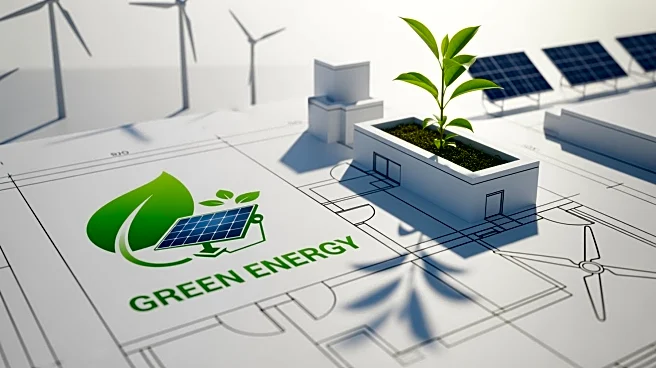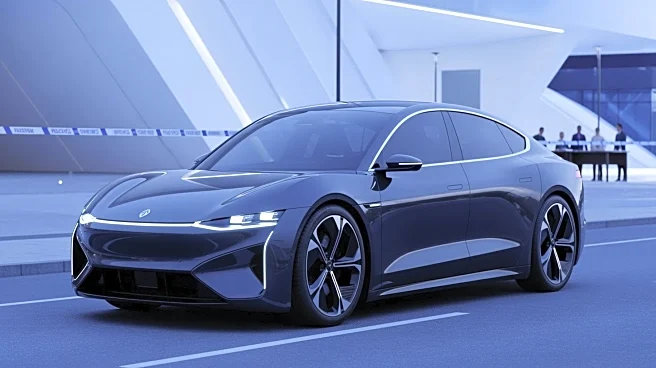What's Happening?
The concept of net zero energy buildings is gaining traction as a sustainable solution to energy consumption. These buildings are designed to produce as much energy as they consume, often through renewable
sources like solar panels. The initiative has seen success in various locations, including Switzerland, where houses have been reported to produce significantly more energy than they consume. The movement is supported by organizations such as the Urban Solar Energy Association, which has been involved in solar barnraisings since the late 1970s. Additionally, innovative projects like the Netherlands' net zero energy stadium, which utilizes recycled electric car batteries, highlight the potential for large-scale applications of this concept.
Why It's Important?
Net zero energy buildings represent a significant shift towards sustainable living and energy efficiency. By reducing reliance on non-renewable energy sources, these buildings can contribute to lower carbon emissions and help combat climate change. The adoption of such practices can lead to economic benefits, including reduced energy costs for homeowners and businesses. Furthermore, the integration of renewable energy technologies in construction can drive innovation and create new job opportunities in the green energy sector. As more countries and companies invest in these technologies, the potential for widespread environmental and economic impact grows.
What's Next?
The continued development and implementation of net zero energy buildings are likely to influence future construction standards and regulations. Governments may introduce incentives or mandates to encourage the adoption of sustainable building practices. Additionally, advancements in technology, such as more efficient solar panels and energy storage solutions, will play a crucial role in expanding the feasibility of net zero energy buildings. Stakeholders, including construction companies, policymakers, and environmental groups, will need to collaborate to overcome challenges and promote widespread adoption.
Beyond the Headlines
The push for net zero energy buildings also raises questions about urban planning and infrastructure development. As cities grow, integrating sustainable practices into new developments will be essential to manage energy consumption and environmental impact. Moreover, the cultural shift towards sustainability may influence consumer preferences, leading to increased demand for eco-friendly homes and businesses. Ethical considerations, such as equitable access to sustainable technologies, will need to be addressed to ensure that all communities can benefit from these advancements.









